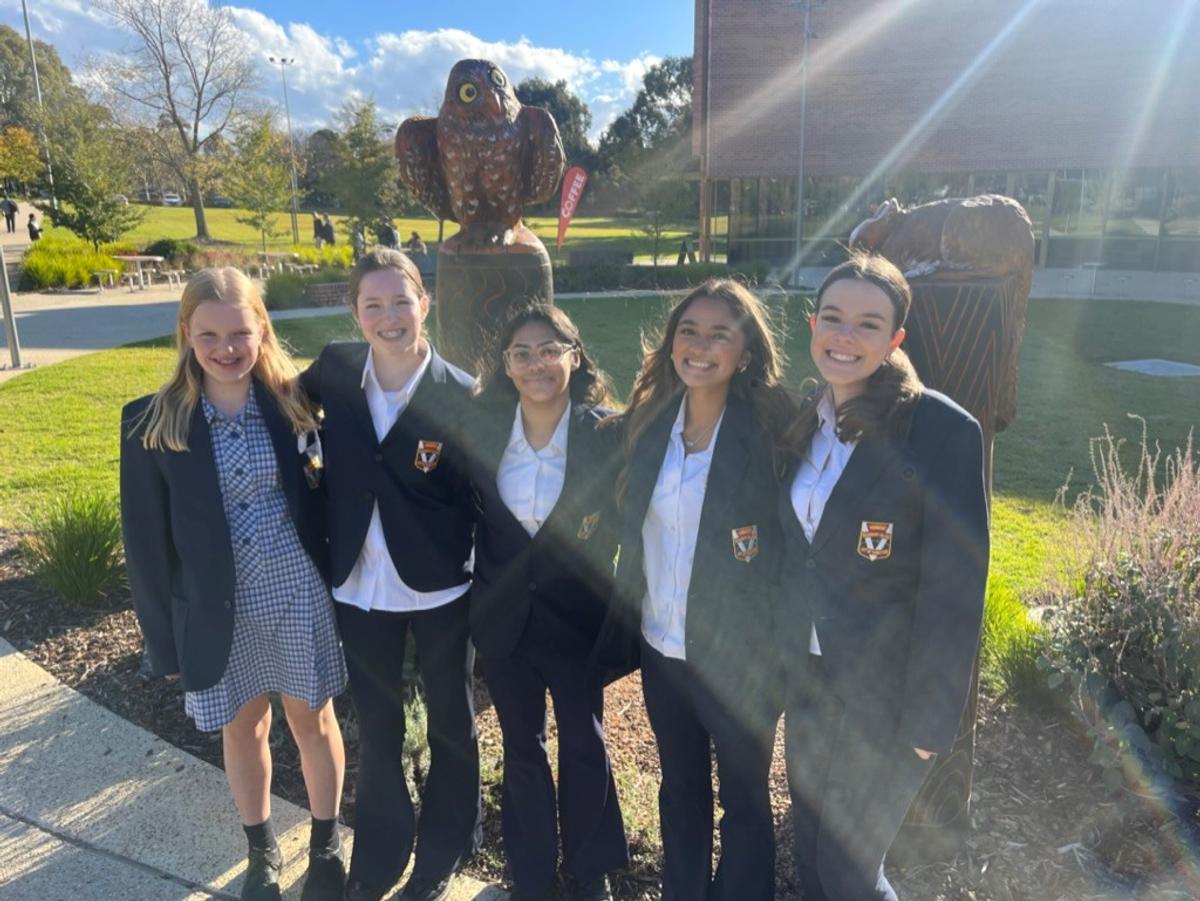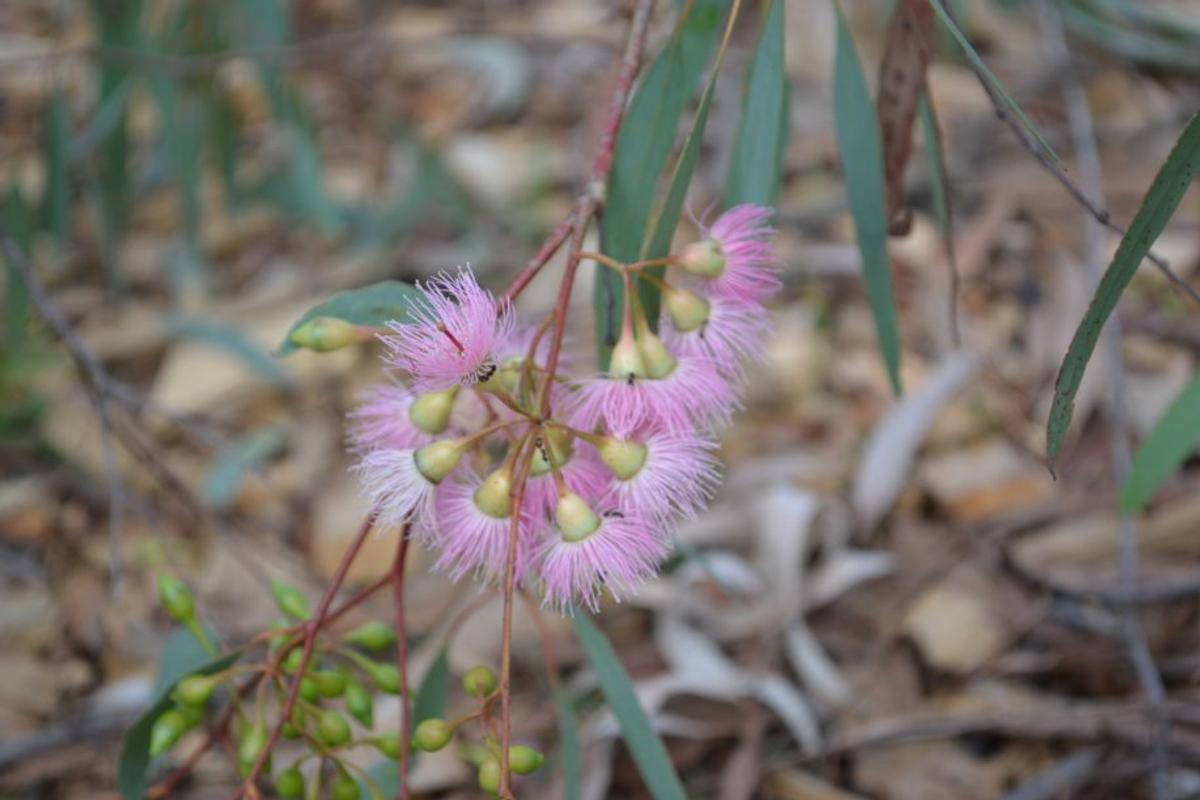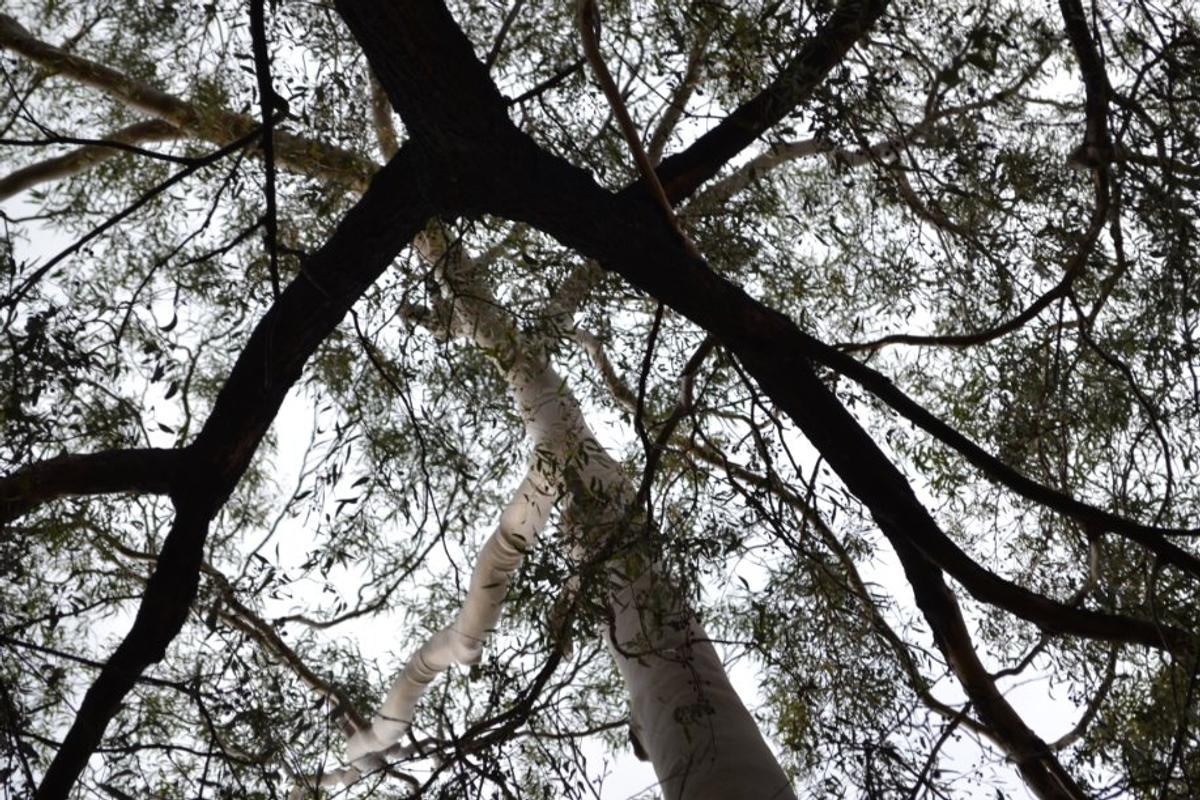Sorry Day
Vermont Secondary College

Sorry Day
Vermont Secondary College
On Monday the 26th of May, 5 of our student leaders were accompanied by Mr Healey in attending a Sorry Day ceremony at the Whitehorse Council Hub in Nunawading. Azzy B, Jack T, Areeba S, Emily M, Ella S and Caitlin S were all involved in the creation of a tailored Sorry Day Assembly that was broadcast to all classes across the school on Monday


This group of students were invited to be a part of this special day.
The afternoon began with hearing from a member of the Whitehorse Council about the purpose of reflecting on Sorry Day. Aboriginal Elder, Uncle Colin, performed a smoking ceremony and spoke on his personal experiences of trauma and the meaning of reconciliation to him.
Thank you to the students involved for their hard work in preparing speeches for this important day.
We are all here today on Sorry Day to acknowledge some of the terrible things that have happened in Australia’s past but also see how far we’ve come as we continue moving forward into a better world.
This year’s theme is ‘Bridging Now to Next’ and it’s about learning from the past and continuing reconciliation. We have these days to reflect upon what has happened in the past so we can move forward and make sure it never happens again.
On Sorry Day, we acknowledge and remember that thousands of displaced Aboriginal people, those stolen from their families, homes and culture. Many of these people were under 10 years old. Some children were told their family no longer wanted them; some parents were told their kids had died. They were taken from loving homes and put in government orphanages or non Aboriginal foster homes.
This is known as the ‘Stolen Generations’ and it had many terrible effects on everyone involved and on Aboriginal culture and traditions. Effects that still impact people today. All these years later, the survivors of the Stolen Generation still have worse health than other Aboriginal people. And remember this all happened because the government at the time forced Aboriginal kids to leave their homes.
In the 1990s there was a national investigation into the Stolen Generations that collected stories from many people who were affected. This investigation showed that many people were still suffering.
One person in Melbourne said, “Why me; why was I taken? It's like a hole in your heart that can never heal”.
Another said, “How can you be proud of being Aboriginal after all the humiliation and the anger and the hatred you have?”
Somehow even though up to 1 in 3 children were stolen, Aboriginal culture survived. This shows how powerful and strong Aboriginal culture is. Some of the stolen kids have fought to find their families and reunite with their true parents.
I encourage you all to take a moment and think about how you’d feel if something like this happened to you. Because it happened to kids like us right here in Melbourne.
So, on this 2025 Sorry Day we can continue to bridge now to next, making Australia an even better place for all.
Thank you
Emily M (Year 9 Hotham)
The word ‘sorry’ is used in many different contexts. Oftentimes, it is spoken casually, a response to a minor inconvenience, a way to diffuse tension or conclude a situation. However, this frequent use can diminish the word’s significance, obscuring the sincerity of a true apology. ‘Sorry’ has the potential to be powerful and heartfelt, an acknowledgement of wrongdoing and harm.
This is the intention behind sorry day. To recognise the past- the atrocities, the trauma and the pain Aboriginal and Torres Strait Islander peoples endured, which, in some cases, is still happening today. However, it is also a time to reflect, commemorate and remember the beauty of indigenous culture. And this year’s theme- bridging the now to next, asks us to do that.
It asks us to recognise the connection between the past, present and future. Not only by acknowledging the awful events that happened in history, but also the inequalities still existing in today’s world- differences in healthcare, education and opportunity. Even though these inequalities and circumstances may seem removed to us, sorry day is about recognising these and empathising with everyone who has unfortunately been in these situations.
Aboriginal and Torres Strait Islander cultures are some of the oldest in the world. Traditions, language, dance, song and most importantly, connection to the land are still thriving today. Their customs and knowledge can teach the whole world many lessons about respect, community and sustainability.
Sorry day is one day of the year where we reflect on the past and make promises for the future. In closing, I hope that you will use the other 364 days of the year to do similar things: to think, empathise and recognise indigenous culture for the power that it is. This is how we will truly bridge now to next.
Thank you
Ella S (Year 10 Macedon)
The following photos were taken by Milly J (year 9 Stirling) and were used as the background for the assembly presentation.




Also, thank you to Sebastian B for helping film the assembly.